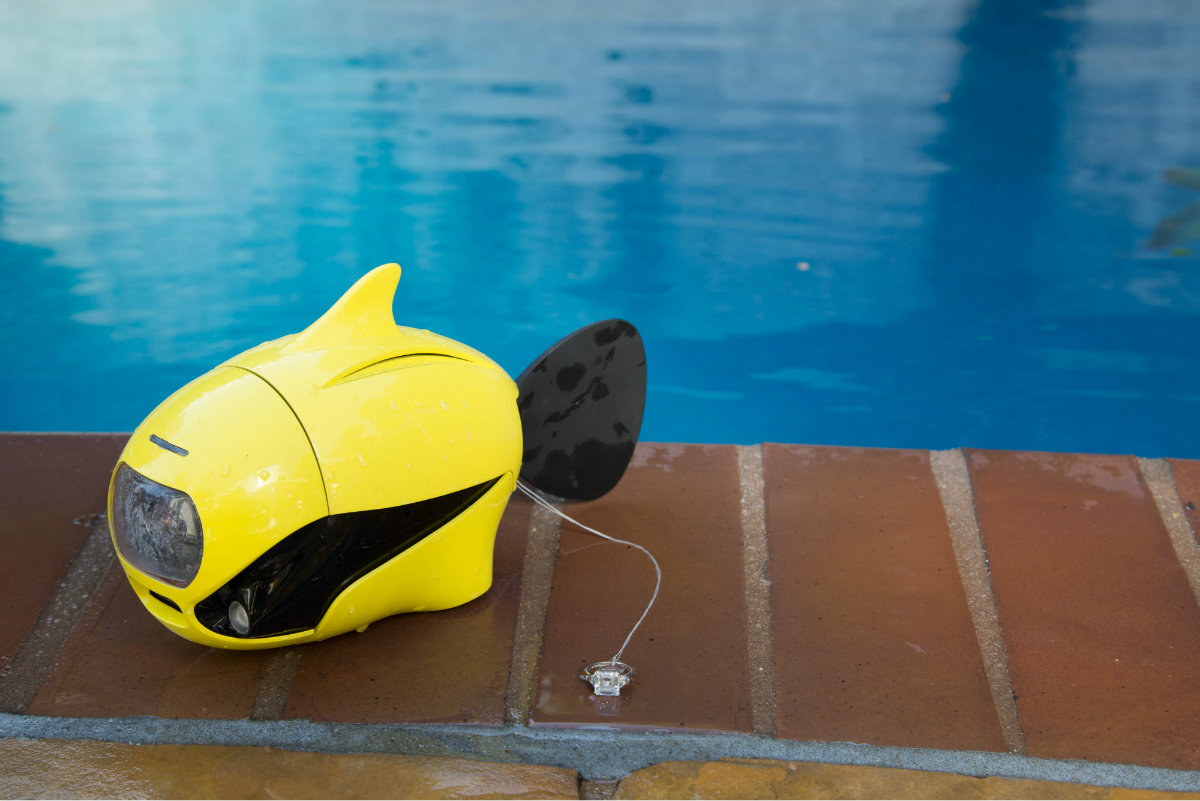Sometimes it would be nice to inspect a main drain without all the scuba gear.
For such occasions, an underwater drone may be just the thing.
Several companies are producing consumer versions of the big, expensive unmanned underwater vehicles used for marine exploration. These smaller and comparatively cheaper units stream high-definition video to your smartphone or tablet – great for capturing footage of coral reefs or for gathering intel at your favorite fishing hole.
OpenROV in Berkeley, Calif. recently released the Trident, a mini submarine that can dive up to 100 meters and is equipped with a high-resolution camera. Likewise, Beijing-based Robosea raised more than $203,000 through Kickstarter for what it is touting as the world’s first wireless bionic fish. It’s called BIKI and features a 4K camera. Both products can be piloted with a smartphone app.
This technology can be more than fun – pool pros see their potential as investigative tools.
Story continues below.
“If you’re trying to survey for cracks in the pool close up, you could use that as an option,” said Steve White, a certified diver and owner of Underwater Pool Masters in West Boylston, Mass. A self-described “pool scene investigator,” he’s frequently called upon by realtors to inspect pools for problems.
And for especially large commercial pools, he wouldn’t mind deploying the device to examine a hydrostatic valve or to see if the drain cover requires any attention.
“Maybe something like this could make some judgments,” he said.
Plus, an underwater drone could spare divers from inspecting pools when the water is less than inviting.
“When the water is below 45 degrees, a drone would be great,” said Mike Stinson, a certified diver operating as Mike the Poolman in Folsom, Calif. “But for water over 50 degrees, a diver in a wetsuit can accomplish more with less headaches of breakdowns, remotes, etc.”
Representatives of plaster companies may also find them useful for taking high-res images of defective surface materials.
The cost, however, gives pros pause. The devices retail for upwards of $1,000.
“How many 40-foot deep pools are out there to make a drone feasible? Not many,” Stinson said.
Until they make a drone that can repair rebar, patch plaster and remove drain covers, divers will always be in demand. If nothing else, these aquatic automatons are good for getting photos of underwater repair pros in action.




